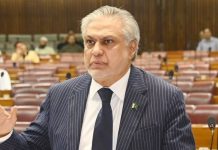Foreign Desk Report
VIENNA: After the Austrian government released its controversial National Map of Islam last month and placed signs across the country warning of nearby mosques that may constitute a threat, attacks against Muslims have increased rapidly, highlighting a new wave of hate toward the minority group in the European Union-member country.
Racist attacks and labeling have dramatically increased since Austria released its “Islam Map” last month, the head of a Muslim community group said on Saturday.
“Attacks against Muslims rose after this incident. Ugly signs were hung on our mosques,” said Ümit Vural, president of the Islamic Religious Community in Austria (IGGO). “We had said that this website must be taken offline as soon as possible – that it could be dangerous,” Vural told Anadolu Agency (AA). “I’m sorry, but all our concerns have proven true.”
After the digital map identifying the locations of more than 600 mosques and associations around Austria was unveiled on May 27, racist attacks on Muslims increased, especially against mosques, which have become a target of racist groups. Incendiary anti-Muslim signs have reportedly been hung in mosques in various cities, especially in the capital of Vienna, in the past two days. Signs depict an “angry Muslim” and a warning of the dangers of political Islam underneath. “Beware! Political Islam nearby,” it reads.
Vural said that while the map was not a new phenomenon, the government’s continued backing of the project via its Documentation Center of Political Islam had taken the issue to a new level.
He noted that the map, which could be taken to show that “all Muslims are dangerous,” was prepared using one-sided data, with officials naming any Muslim they choose a representative of “political Islam.”
Requests for the correction of information on the map, meanwhile, were ignored by the team that conducted the study, said Vural.
He underlined that his group has been unable to explain to authorities why various policies, such as the ban on headscarves in primary schools and the establishment of the Documentation Center of Political Islam, are wrong.
“We see very clearly that Muslims are treated differently. If we’re an officially recognized religion here, we want the same treatment as the other 15 faith communities. We don’t want different or special treatment,” he said. Vural also underlined that Muslims are a part of Austria and that any problem could be resolved through dialogue.




